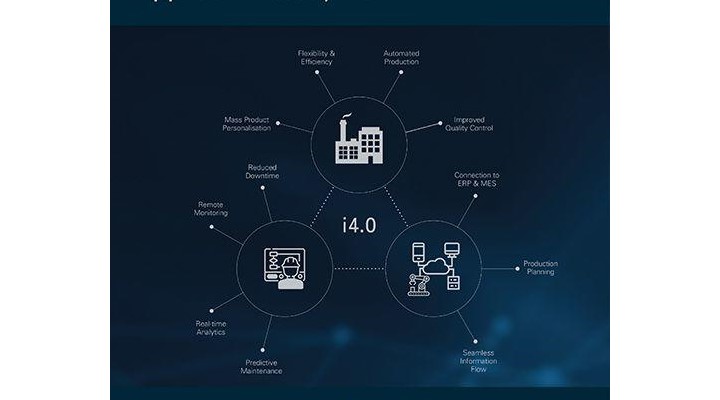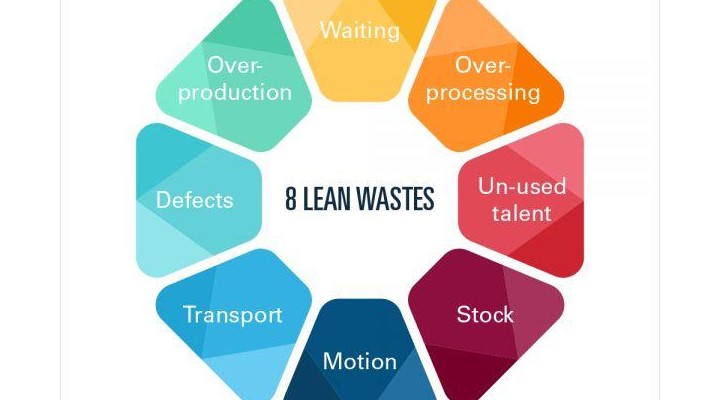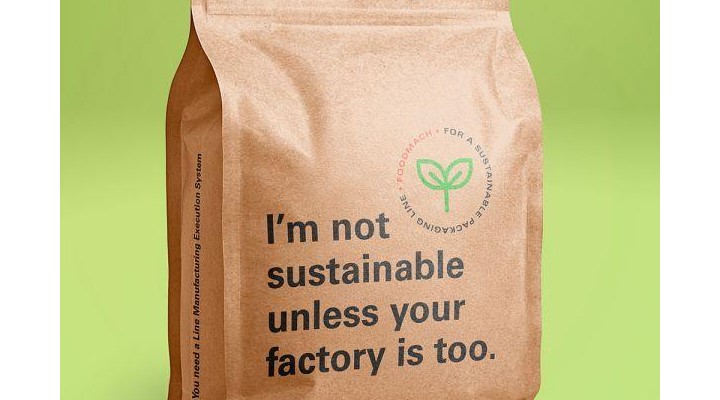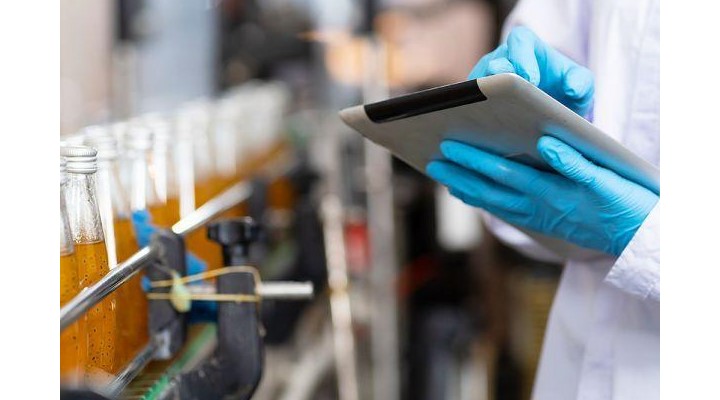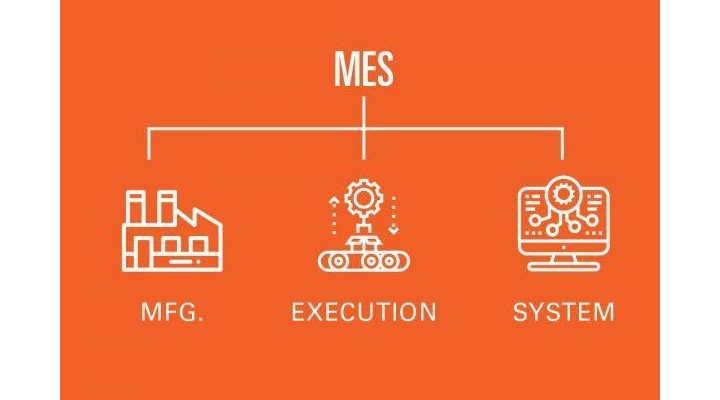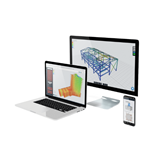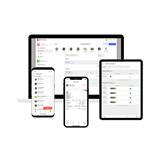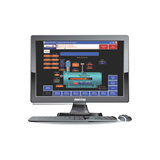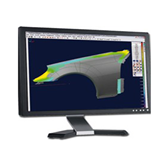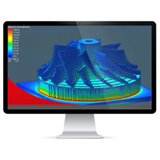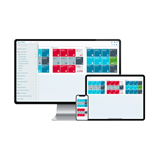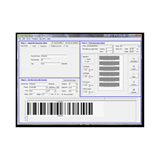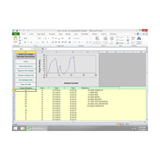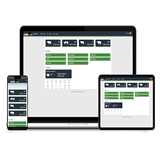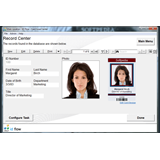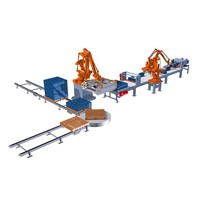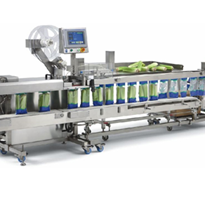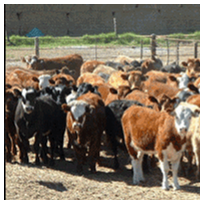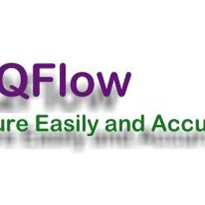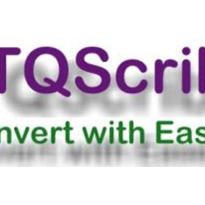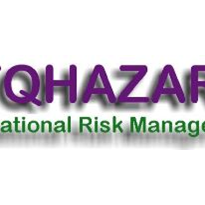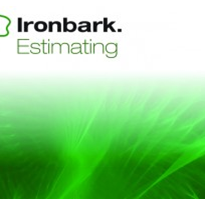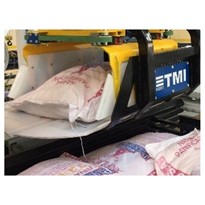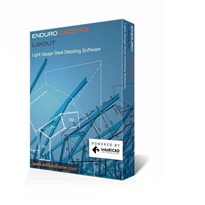There are several utopian ideals in FMCG manufacturing that appear to offer incredible benefits.
Terms such as:
- OEE (Overall Equipment Effectiveness);
- Industry 4.0 and the smart factory;
- Sustainability; and
- Paperless manufacturing
… all sound like great ideas and are undeniably what we should be aiming for.
However, few practical or useful solutions are around unless you have the budget to invest in a fully-automated greenfield factory with a full line from a single OEM.
The aim of our software development has been to deliver these ideals to our customers in a scalable way.
The Problem
FMCG production managers face some specific challenges in achieving the targets set out for them, not least of all:
- Safety
- Downtime (availability – breakdown, changeovers)
- Speed/Product Rates (performance – microstops, slow cycles)
- Product quality control
- Cost of ownership
The Solution
Foodmach has developed an award-winning production line control software stack for the FMCG industry that delivers:
- Absolute control: Over the machines and products running through them.
- Data: All the data points needed to experience the full benefits of Industry 4.0.
- Waste reduction: At every stage of production.
There are two key modules:
Line MES: A real-time execution system for FMCG manufacturing lines that acts as a global controller, and
FM LINK: A comprehensive, dynamic software system that monitors, tracks, documents, and controls the process of manufactured goods.
1. LINE MES
Foodmach’s Line Manufacturing Execution System, or Line MES, is our real-time execution system for FMCG manufacturing lines.
Think of it as a central, global controller.
Line MES* links together all the individual components on a production line and provides the following functions:
- Communication with a higher-level MES or ERP system to receive process orders, scheduling and pathing information.
- Interfacing to the individual machines and equipment on the line to a central point.
- Transfer of parameters and data to equipment for efficient setup and changeover.
- Monitoring of machine raw materials and operator prompts when low.
- Visualisation of the line and machine modes and states.
- Display of errors, warnings and current production data.
- Full integration for overall equipment effectiveness data for the line and individual machines.
(*Manufacturing execution systems (MES) are the tools by which data is acquired and shown to all relevant parties in real-time. They enhance control and reduce response times to issues affecting production. They also help regulated industries, such as food and beverage and pharmaceuticals, provide proof of processes, events, actions, and documentation.)
Multi SKU
Line MES offers multi-SKU capability, which is a significant advantage for lines with frequent product changes.
It allows different SKUs to be run concurrently on different parts of the line.
For example, while the filler is being changed over—which takes 15-30 minutes—other SKUs can enter the line to reduce downtime. It’s possible to have say three SKUs in production at the same time, one between the depalletiser and the filler, another between the filler and labeller and a third running from the labeller to the stretch wrapper. This is a considerable gain over some line control systems which cannot start releasing a new container from the depalletiser until the last case of the previous run is palletised.
Meets International Standards
Our software integrates seamlessly with any ERP or legacy system.
The Foodmach software stack exceeds all functionalities required by ISA-S88 standards, an international standard from the International Society of Automation for best practice in developing an automated interface between enterprise and batch control systems.
Reference Sites
Customers such as Dulux Group and Treasury Wine Estates have enjoyed the benefits of Line MES at their operations.
Dulux Group’s Merrifield factory is referred to as the most advanced batch plant in the Southern Hemisphere.
2. FM LINK
FM Link provides a digital bridge between a manufacturers’ Enterprise Resource Planning (ERP) system and the factory floor.
FM Link provides industry-leading advanced capability to control entire packaging production lines (using OMAC PackML machine language standards), delivering the following customer benefits:
- Faster line commissioning
- Significantly increased OEE
- Seamless interaction between all machines on the line, removing micro-stops.
- OEE, quality and alarm control and reporting
- Connection with Foodmach and all other OEM machines.
- Fully automatic setup of all devices on the line during product change, resulting in faster product changeovers.
- Integration to the ERP system, creating a single source of data, and truth.
- Paperless manufacturing
Through recipe management and a neural network of sensors, FM Link delivers the right product into the right package, with the right coding and labelling, 100% of the time.
It provides cyber security and authentic OEE for the entire line, not just individual machines, because it’s built in, not patched on.
FM Link includes the following Modules:
- Digital Work Orders: Interfaces to ERP/Management Execution Systems (MES) to receive process orders, tracks and manages the full life cycle of a production process.
- Production Scheduling: Starts and completes work orders. Monitors order status in real-time.
- Paperless Quality: Captures completed checks as they happen, alerts operators to upcoming tasks and measures completion conformance.
- Warehouse Management: Provides real-time visibility into inventory. Reports raw material usage and completed product tracking.
- OEE Metrics: Provides visibility of asset availability, performance and quality.
FM Link facilitates a truly lean manufacturing operation and is, in our experience, the only way to deliver all the data points required for Industry 4.0.
Reference Sites:
FM Link is currently installed at the $33M Sukin facility in Dandenong and Pernod Ricard Wines new manufacturing centre of excellence in the Barossa Valley.
Both use FM Link for advanced line control, comprehensive OEE, and advanced recipe management for their highly flexible, highly efficient operations.
Recipe management enables them to run hundreds of SKUs, sometimes concurrently, with minimal wastage of time, energy, material and human resources.
Unique Features
Our software suite provides complete control over the machines on a production line and the product running through them, and real-time data to guide performance—all from a single, powerful interface.
It enables operators and managers to:
- Have all the production run information sent from the ERP to the line control without the need for any paper.
- Reset the entire line for rapid changeovers at the push of a button, including recipes, SKU data, conveyor speeds and machine settings.
- Easily run multiple product changeovers in a single shift.
- Run flying changeovers (where a new product enters the line before the previous product run has finished).
- Ensure the right product is going into the right container with the right label, coding and packaging—100% of the time.
- Know which raw materials are needed, be prompted when they’re low, or even have raw materials and packaging delivered to the line automatically.
- Obtain 100% accurate OEE data
All the operators need to do is decide which products to run first, based on the line control’s recommendations, and then simply press ‘start’.
For FMCG manufacturers dealing with many stock keeping units, waste is an ongoing issue. Whole pallet loads can be dumped due to the wrong labelling, coding, compliance or a dozen other reasons. Our software suite changes all that, delivering absolute OEE and Industry 4.0 capability.
No Competition
The market for advanced production line control is flooded with proprietary OEM software that does little except lock manufacturers into an expensive, confusing and hard-to-manage situation without delivering true whole-of-line control and OEE.
Foodmach software makes it possible for Australian manufacturers to join the digital revolution without massive CAPEX investment into an all-new line from one OEM.
It supports the essential role FMCG manufacturers have to play in the circular economy and provides the foundation for sustainability efforts at every level of their operations.


